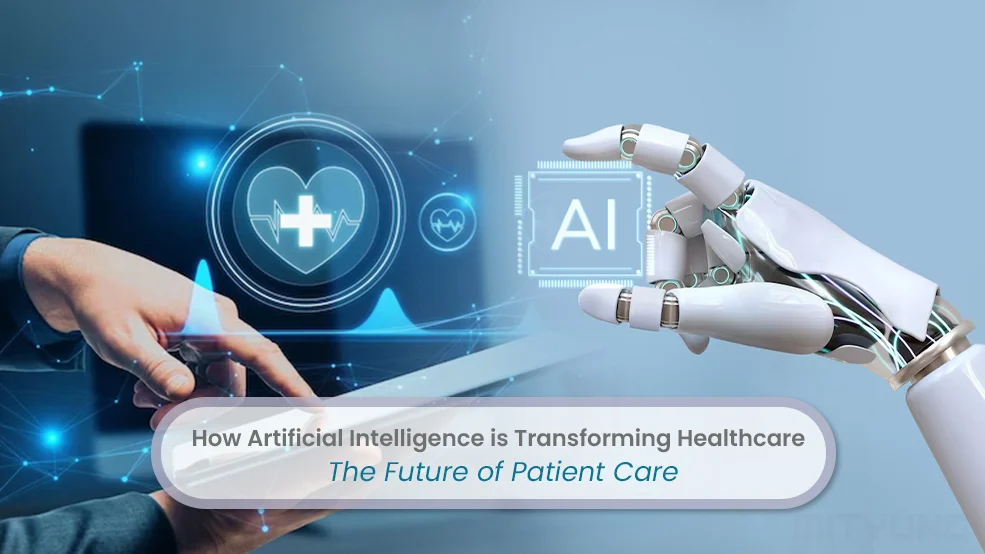Artificial intelligence (AI) has been revolutionizing the healthcare industry with its innovative technologies. Top 5 AI Innovations Transforming Healthcare include machine learning, natural language processing, robotics, virtual health assistants, and predictive analytics. These advancements are enhancing patient care, streamlining administrative tasks, and improving medical research and diagnosis.
AI technologies are making a significant impact on the healthcare sector, with machine learning algorithms enabling personalized treatment plans for patients. Natural language processing is facilitating the analysis of unstructured medical data, leading to better clinical decision-making. Robotics is transforming surgical procedures, making them more precise and less invasive. Virtual health assistants are providing round-the-clock support to patients, and predictive analytics are helping in the early detection and prevention of diseases. These innovations are reshaping the future of healthcare, offering improved efficiency and patient outcomes.
1. AI-Powered Diagnostics
AI-powered diagnostics refer to the use of artificial intelligence algorithms to analyze medical images, such as X-rays, MRIs, and CT scans, to assist in the detection and diagnosis of various medical conditions. These algorithms can quickly and accurately identify patterns or abnormalities that may not be immediately apparent to the human eye, helping healthcare professionals make more informed decisions about patient care.
By leveraging AI for diagnostics, healthcare providers can improve the speed and accuracy of diagnosis, leading to earlier detection of diseases and better patient outcomes. This technology has the potential to revolutionize medical imaging and make diagnostic processes more efficient, ultimately saving lives and reducing healthcare costs.
2. Virtual Health Assistants
Virtual health assistants, powered by AI, are revolutionizing the way patients interact with the healthcare system. These virtual assistants can provide personalized medical advice, answer general health-related questions, and even assist in scheduling appointments and medication reminders. By leveraging natural language processing and machine learning, virtual health assistants offer a convenient and accessible way for patients to access healthcare information and support.
Furthermore, virtual health assistants can help alleviate the burden on healthcare professionals by handling routine inquiries and administrative tasks, allowing doctors and nurses to focus on more complex patient care needs. As technology continues to advance, virtual health assistants are expected to play an increasingly important role in delivering efficient and patient-centered healthcare services.
3. Predictive Analytics for Patient Outcomes
AI-driven predictive analytics involves the use of machine learning algorithms to analyze large volumes of patient data and identify patterns that can help predict individual patient outcomes. By analyzing factors such as medical history, genetic information, and lifestyle habits, AI can assist healthcare providers in identifying patients who may be at higher risk for certain conditions or complications.
By leveraging predictive analytics, healthcare organizations can proactively intervene to prevent adverse outcomes, personalize treatment plans, and allocate resources more effectively. This has the potential to improve patient outcomes, reduce hospital readmissions, and optimize the delivery of healthcare services.
4. Drug Discovery and Development
AI is transforming the process of drug discovery and development by accelerating the identification of potential drug candidates, predicting their efficacy, and optimizing treatment regimens. Machine learning algorithms can analyze large datasets to identify molecular targets for drug intervention, predict the success of new drug candidates, and optimize dosing regimens based on individual patient characteristics.
By leveraging AI in drug discovery and development, pharmaceutical companies can streamline the research and development process, bringing new treatments to market more quickly and cost-effectively. This has the potential to expand the range of available treatment options and improve the overall efficiency of the drug development pipeline.
5. Remote Monitoring and Telemedicine
AI-powered remote monitoring and telemedicine solutions enable healthcare providers to monitor patients’ vital signs, symptoms, and adherence to treatment plans from a distance. By leveraging AI algorithms, these solutions can analyze real-time patient data and alert healthcare providers to any concerning changes or issues that may require intervention.
Remote monitoring and telemedicine, empowered by AI, offer the potential to improve access to healthcare for individuals in remote or underserved areas, as well as enhance the ongoing management of chronic conditions. As technology continues to advance, these solutions have the potential to play a crucial role in expanding access to quality healthcare services and improving patient outcomes.
| AI Innovation | Description |
|---|---|
| Robot-Assisted Surgery | AI-powered robots assist surgeons in performing precision surgeries, resulting in reduced recovery times and better outcomes for patients. |
| Virtual Health Assistants | AI-powered virtual assistants provide personalized healthcare support, reminders for medication, and even mental health counseling. |
| Medical Imaging Diagnosis | AI algorithms analyze medical imaging scans such as MRI and CT scans to assist doctors in early detection and accurate diagnosis of diseases. |
| Predictive Analytics | AI analyzes patient data to predict potential health risks and recommend preventive measures, leading to proactive healthcare management. |
| Drug Discovery and Development | AI accelerates the process of drug discovery by analyzing vast amounts of biological data, leading to faster development of new medications. |

